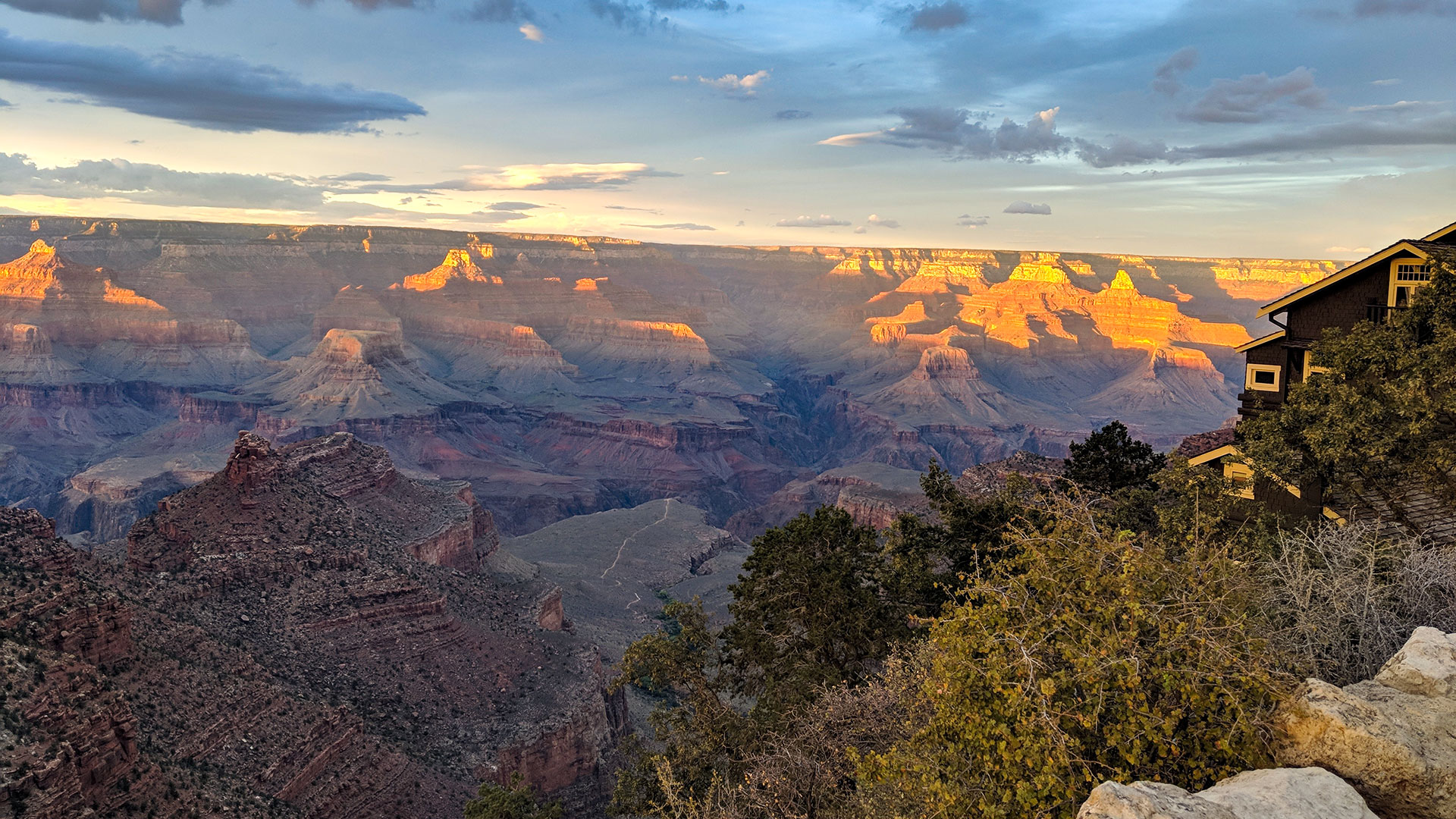 A view from the South Rim of the Grand Canyon, next to the Kolb Studio, September 2018.
A view from the South Rim of the Grand Canyon, next to the Kolb Studio, September 2018.
Advocates for limiting mining around Grand Canyon National Park expressed hope Monday that a new national monument would preserve the land for future generations.
President Joe Biden is visiting the area Tuesday and is expected to announce plans for a new national monument to preserve about 1,562 square miles (4,046 square kilometers).
Representatives of various northern Arizona tribes have been invited to attend the president's remarks. Among them are Colorado River Indian Tribes Chairwoman Amelia Flores, Navajo President Buu Nygren, and Havasupai Tribal Councilwoman Dianna Sue White Dove Uqualla. Uqualla is part of a group of tribal dancers who will perform a blessing.
"It's really the uranium we don't want coming out of the ground because it's going to affect everything around us — the trees, the land, the animals, the people," said Uqualla. "It's not going to stop.”
Tribes in Arizona have been pushing Biden to use his authority under the Antiquities Act of 1906 to create a new national monument called Baaj Nwaavjo I’tah Kukveni. “Baaj Nwaavjo” means “where tribes roam,” for the Havasupai people, while “I’tah Kukveni” translates to “our footprints,” for the Hopi tribe.
Tribes and environmentalists for decades have been trying to safeguard the land north and south of Grand Canyon National Park, while Republican lawmakers and the mining industry tout the economic benefits and raise mining as a matter of national security.
The Interior Department, reacting to concerns over the risk of contaminating water, enacted a 20-year moratorium on the filing of new mining claims around the national park in 2012. Democratic U.S. Rep. Raul Grijalva repeatedly has introduced legislation to create a national monument.
A U.S. Geological Survey in 2021 found most springs and wells in a vast region of northern Arizona known for its high-grade uranium ore meet federal drinking water standards despite decades of uranium mining.
In 2017, Democratic President Barack Obama backed off a full-on monument designation. The idea faced a hostile reception from Arizona's Republican governor and two senators. Then-Gov. Doug Ducey threatened legal action, saying Arizona already has enough national monuments.
Opponents of establishing a monument have argued it won’t help combat a lingering drought and could prevent thinning of forests and stop hunters from keeping wildlife populations in check. Ranchers in Utah near the Arizona border say the monument designation would strip them of privately owned land.
The landscape of Arizona's political delegation has since changed considerably. Gov. Katie Hobbs, Democratic Sen. Mark Kelly, and Sen. Kyrsten Sinema, an Independent, are all on board. Hobbs, a Democrat, has openly urged Biden to issue a designation. In a letter sent to Biden in May, Hobbs claimed that she heard from people across the political spectrum, including sporting groups and outdoor groups, in support of a monument.
Mining companies and the areas that would benefit from their business have been vehemently opposed. Buster Johnson, a Mohave County supervisor, said the monument proposal feels solely politically driven and there should have been another hearing on the matter. He doesn't see the point of not tapping into uranium and making the country less dependent on Russia.
“We need uranium for the security of our country,” Johnson said. “We're out of the game.”
No uranium mines are operating in Arizona, although the Pinyon Plain Mine just south of Grand Canyon National Park has been under development for years. Other claims are grandfathered in. The federal government has said nearly a dozen mines within the area that has been withdrawn from new mining claims could still potentially open, even with the monument designation, because their claims were established before 2012.
After Arizona, Biden will go on to Albuquerque on Wednesday, where he will talk about how fighting climate change has created new jobs. He’ll then visit Salt Lake City on Thursday to mark the first anniversary of the PACT Act, which provides new benefits to veterans who were exposed to toxic substances. He’ll also hold a reelection fundraiser in each city.

By submitting your comments, you hereby give AZPM the right to post your comments and potentially use them in any other form of media operated by this institution.